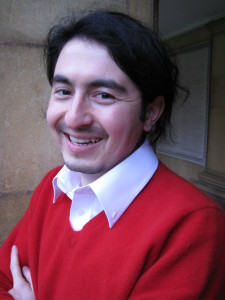 Three years ago I travelled to Gaborone, Botswana for my medical elective. I was there to learn about glaucoma—the complex eye disease and so called “silent thief of sight.”
Three years ago I travelled to Gaborone, Botswana for my medical elective. I was there to learn about glaucoma—the complex eye disease and so called “silent thief of sight.”
After the initial excitement of arriving in a country known for its dazzling birds, savannahs, and pristine natural beauty, came the challenge.
Glaucoma is the second leading cause of blindness globally and a major cause of visual impairment and blindness in sub-Saharan Africa. Throughout the two months I spent seeing, examining, and interviewing patients across Botswana, I was struck by how much patients regarded their gradual, usually painless, and initially asymptomatic loss of vision as a normal process of ageing. The condition, characterised by optic nerve damage and visual defects, has a higher prevalence, earlier onset, and faster progression rate in black populations. This, coupled with the challenges of diagnosis, management, and follow-up of patients in a middle income and sparsely populated country like Botswana, has caused significant disease burden and disability.
When I started my elective there were no previous studies on glaucoma burden, its management strategies, or the service infrastructure in Botswana. I was in completely uncharted territory. Fortunately, the practical difficulties of doing research were overcome as there was an overwhelming desire in every eye unit in Botswana to learn about the true extent of the problem and plan the way forward.
I conducted a study that revealed many challenges, including a limited understanding of the condition among patients and poor access to effective medication and safe surgery. Some of the issues raised in the study required an urgent response, such as increasing the number of ophthalmologists trained in treating glaucoma to meet the recommendations of the WHO Vision 2020: a global initiative for the elimination of avoidable blindness.
Three years on and there is encouraging news coming from Botswana. There are now more ophthalmologists with subspecialty interest in glaucoma working in the government sector and the service infrastructure is gradually improving across the country.
What I have learnt from my experience of working in Botswana is that strengthening institutional capacity is instrumental to providing better care. The list of challenges highlighted by my research was undoubtedly daunting, but Botswana has acknowledged the magnitude of the problem and has worked to address the issues step by step.
Increasing the availability of diagnostic equipment, medicines, and more homegrown ophthalmic staff is crucial in building and strengthening the capacity of eye units. The need for setting and agreeing targets, with input from frontline ophthalmic staff, has been another important lesson in ensuring the success of any strategy.
Mohammad Razai was born in Afghanistan, trained at Cambridge, and works as a junior doctor in London. He has extensive global public health experience and is passionate about improving quality and safety in healthcare.
Competing interests: None declared.
